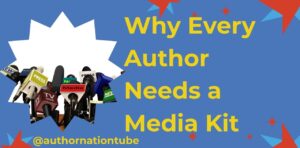Lately I have been talking about thinking patterns. Sometimes we need to think creatively and other times we need to bring our logical brain into action. Today, we are going to talk more about your creative thinking, called divergent thinking, and give you some strategies and activities to help you in cultivating creativity for writers.
10 Ways to Think Creatively
Thinking divergently involves breaking away from conventional or linear thought patterns to explore multiple possibilities, ideas, and perspectives. Here are 10 strategies to help you in thinking divergently and cultivating creativity for writers:
Suspend Judgment
Avoid immediately dismissing ideas as impractical or unrealistic. Instead, suspend judgment and allow yourself to entertain even the most unconventional or seemingly far-fetched notions.
Generate Multiple Ideas
Practice brainstorming techniques to generate a multitude of ideas without censorship. The idea is to come up with as many ideas as possible, even ‘wild’ ideas, without judgment. Focus on the sheer volume of ideas, without worrying about feasibility or practicality. This makes cultivating creativity for writers so much easier!
Make Connections
Look for connections between seemingly unrelated concepts, disciplines, or experiences. Draw inspiration from diverse sources and integrate insights from different areas into your thinking process.
Explore Analogies and Metaphors
Use analogies and metaphors to reframe problems or concepts in new and unexpected ways. Drawing parallels with unrelated domains can spark creative insights and uncover novel solutions.
Embrace Playfulness
Adopt a playful and curious mindset that encourages experimentation and exploration. Engage in creative activities such as doodling, improvisation, or role-playing to stimulate your imagination and free your mind from constraints. These activities give you the edge in cultivating creativity for writers!
Reverse Assumptions
Challenge assumptions and conventional wisdom by exploring alternative perspectives and viewpoints. Explore “what if” scenarios and imagine how the situation might unfold under different circumstances.
Seek Diverse Input
To develop a more open and expansive mindset, it is important to expose yourself to a variety of perspectives, experiences, and cultures. Engage in conversations with people from different backgrounds and disciplines to gain fresh insights and ideas.
Practice Mindfulness
Cultivate mindfulness practices, such as meditation or deep breathing exercises, to quiet your mind and foster a state of relaxed awareness. This can help you tap into your intuition and access deeper layers of creativity.
Encourage Serendipity
Remain open to unexpected discoveries and chance encounters that may lead to novel insights or ideas. Allow yourself to follow tangents and explore new avenues without rigidly adhering to a predetermined course of action.
Iterate and Refine
Continuously iterate and refine your ideas through experimentation and feedback. Embrace failure as a natural part of the process of cultivating creativity for writers, using it as an opportunity to learn and grow.
Ideas for Authors to Try
Let’s break down three of them and tackle some very practical ideas for actually doing this.
Here are three activities or exercises to practice divergent thinking:
Reverse Thinking:
Challenge traditional assumptions by flipping the problem or situation. Instead of approaching it from a typical perspective, consider the scenario or outcome from the opposite viewpoint.
For example, if the problem is “How can we increase sales?” try asking, “How can we decrease sales?” This reversal can lead to creative insights and unexpected solutions by prompting you to consider alternative approaches and perspectives.
Alternative Perspectives Brainstorming:
Challenge assumptions and conventional wisdom by exploring alternative perspectives on a given topic or problem. Choose a topic or problem that you’re interested in exploring. Brainstorm a list of alternative viewpoints or approaches to that topic or problem. Consider how different individuals or groups might perceive the issue differently or approach it from unique angles.
For example, if the topic is “climate change,” you might brainstorm perspectives from scientists, politicians, activists, indigenous communities, future generations, etc.

Creative Prompt Exploration:
Use creative prompts to spark divergent thinking and explore new possibilities. Choose a prompt that resonates with you, such as a quote, image, song lyric, or object. Then, allow your mind to wander freely and generate ideas inspired by that prompt. Write down as many ideas, associations, or interpretations as you can without censoring yourself. Embrace playfulness and experimentation as you explore different directions and possibilities.
Example: Let’s take this quote, “Logic will get you from A to B. Imagination will take you everywhere.” – Albert Einstein
You might brainstorm ideas for a story, artwork, invention, or social change initiative inspired by the concept of imagination. This activity encourages you to tap into your creativity and explore multiple possibilities inspired by external stimuli.
Other Posts about Balancing Creativity with Logic
Try these activities out. They will help you suspend judgment, generate multiple ideas, make connections between diverse concepts, explore alternative perspectives, and embrace playfulness and experimentation.
Have fun playing!
– Keep writing and keep thriving,
Melody Ann

Promote Your Book Globally With One Link | How To Use Universal Book Links
What Does It Mean to Promote Your Book Globally With One Link? If you’re still copy-pasting separate links for Amazon, Kobo, Barnes & Noble,

It’s Time To Get Creative With Book Launches | Do Authors Need a Book Launch Party
When it comes to publishing a nonfiction book, it’s time to get creative with book launches. Whether you’re an introverted expert or a bold thought

Why Every Author Needs a Media Kit | How To Create a Press Kit That Gets You Invited To Speak
Why Every Author Needs a Media Kit for Visibility Let’s face it, getting booked on a podcast or featured by a journalist isn’t about
